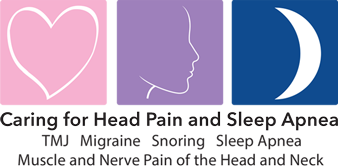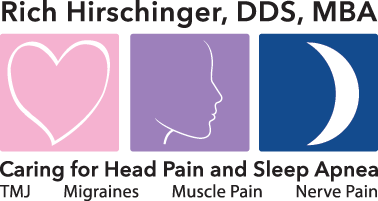

Rich Hirschinger, DDS, MBA
Diplomate American Board of Orofacial Pain
9615 Brighton Way, Suite 323
Beverly Hills, CA 90210
888.981.8981
Diplomate American Board of Orofacial Pain
9615 Brighton Way, Suite 323
Beverly Hills, CA 90210
888.981.8981
Treatment of Neuropathic Pain
More About Neuropathic Pain
- Causes of Neuropathic Pain
- Diagnosing Neuropathic Pain
- Groups at Risk for Neuropathic Pain
- Treatments for Neuropathic Pain
- Life with Neuropathic Pain
- Signs and Symptoms of Neuropathic Pain
- History of Neuropathic Pain
- Neuropathic Pain Fact Sheet
- Q Tip Test
- Occipital Nerve Blocks
- Supratrochlear Supraorbital Infraorbital and Auriculotemporal Trigeminal Nerve Blocks
- Post-traumatic Trigeminal Neuropathic Pain
- Tinnitus Treatment Options
Trigeminal Neuralgia
- Anti-seizure medications: Medicines that block nerve firing are typically the first line of treatment for trigeminal neuralgia. A doctor may prescribe anticonvulsant drugs including carbamazepine, oxcarbazepine, clonazepam, topiramate and a number of other medications found effective in decreasing nerve overactivity. Proper dosing of these potent medications is often identified by prescribing gradually increasing amounts of the drug and carefully monitoring effects and side effects.
- Tricyclic antidepressants: If pain manifests as constant, burning or aching, tricyclic antidepressants have been found useful in pain management.
- Rhizotomy procedures: Rhizotomy procedures block pain by destroying select nerve fibers. The end result can cause numbness in the face. In the treatment of trigeminal neuralgia, several forms of rhizotomy have been used effectively. Balloon compression blocks pain signals by inflating a balloon next to the trigeminal nerve at the base of the skull with enough pressure to damage the nerve. Radiofrequency lesioning uses electrical currents to identify the portion of the trigeminal nerve responsible for pain and destroys those nerve fibers with a heated electrode. In stereotactic radiosurgery, highly focused beams of radiation directed at the trigeminal nerve at the base of the skull slowly cause a lesion on the nerve over a period of several months.
- Microvascular decompression: This surgical procedure works by implanting a cushion between the trigeminal nerve and the compressing blood vessel.
Atypical Odontalgia
Local anesthetics and steroid injections may reduce pain symptoms if pain originates in a nerve near the teeth or gums. The application of prepared medicinal creams has also been found to provide pain relief. Drug treatment options include antiseizure medications, tricyclic antidepressants or narcotics*.
Oral Nerve Injury
If pain from nerve damage sustained during a dental procedure does not improve within 6 to 8 weeks, surgical repair can be performed. When done within 10 to 12 weeks of the injury, 70 percent of patients report at least a 75 percent improvement of symptoms. The rate of success in repairing injuries to nerves sustained by trauma from dental and medical procedures improves the closer they are performed to the incident.
Complex Regional Pain Syndrome
Treatment for this condition usually consists of a combination of therapies. Medications used to treat CRPS include antidepressants, pain medications and blood pressure medications. A series of injections of anesthetics in main intersections of affected nerves may stem the advancement of the condition if done in the early stages of the disorder. Physical therapy may also be helpful in improving function in, restoring motion of or desensitizing the affected area. As a last resort, sympathectomy, an interruption of the affected portion of the sympathetic nervous system, can be performed by surgical, chemical or radiofrequency means.
* I do not prescribe narcotics for any patient for any reason.






